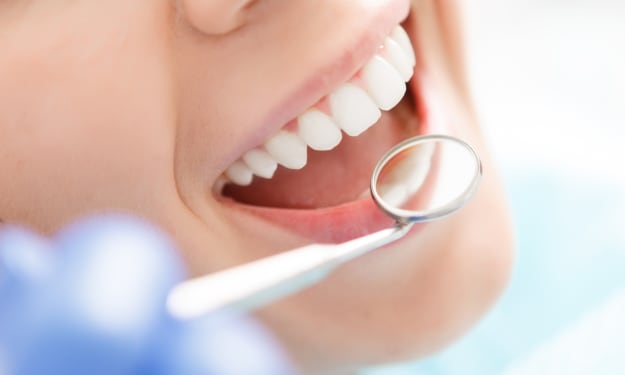The Ringing in Your Ears: Understanding Tinnitus and Its Solutions
Hearing buzzing, clicking, or hissing sounds in your ears?

Hearing buzzing, clicking, or hissing sounds in your ears can be incredibly frustrating and disruptive to your daily life.
The technical term for these sounds is tinnitus, and it affects millions of people around the world.
Tinnitus can range from a mild annoyance to a debilitating condition that significantly impacts one’s quality of life.
In this article, we’ll explore some of the most common reasons people experience tinnitus and the potential solutions for each:

1. Hearing Loss
- One of the most common reasons people experience tinnitus is hearing loss.
- This can occur due to age, noise exposure, or certain medical conditions.
- When you lose your hearing, your brain may start to fill in the gaps with its own sound, which can manifest as tinnitus.
There are a few potential solutions for tinnitus related to hearing loss:
a) The first is to address the hearing loss itself:
- This can be done through hearing aids, cochlear implants, or other medical interventions.
- In some cases, addressing the hearing loss may also alleviate the tinnitus.
b) Another option is sound therapy, which involves introducing external sounds to help mask the tinnitus.
- This can include white noise machines, music, or even nature sounds.
- Sound therapy can be especially helpful at night when tinnitus may be more noticeable.

2. Ear Infections
- Ear infections can cause tinnitus by disrupting the normal functioning of the ear.
- The infection can cause inflammation and swelling, which can impact the way sound is transmitted through the ear.
- Treating the ear infection is the first step in addressing tinnitus related to ear infections.
- This may involve antibiotics or other medications.
It’s also important to take steps to prevent future ear infections, such as keeping the ears clean and dry and avoiding exposure to irritants like cigarette smoke or allergenics.
3. Stress and Anxiety
- Stress and anxiety can also lead to tinnitus.
- When you’re stressed or anxious, your body can produce more cortisol, which can impact your overall health, including your hearing.
- Stress and anxiety can also cause muscle tension, which can manifest as tinnitus.
Managing stress and anxiety can be an effective solution for tinnitus.
- This can include relaxation techniques like meditation or yoga, exercise, or therapy.
It’s also important to identify and address the root causes of your stress and anxiety. In some cases, talking to a mental health professional can be helpful.
4. Medications
Certain medications can cause tinnitus as a side effect.
- This can include antibiotics, antidepressants, cancer medications, diuretics, and even over-the-counter pain medications like aspirin.
- If you suspect that your tinnitus is related to a medication you’re taking, talk to your doctor about alternative treatments.
In some cases, simply adjusting the dosage or switching to a different medication can help alleviate the tinnitus.

5. Nutrient Deficiencies
Nutrient deficiencies can also impact your hearing health and lead to tinnitus.
- Specifically, deficiencies in vitamins B12, B6, and E, as well as zinc, have been linked to tinnitus.
If you suspect a nutrient deficiency may be contributing to your tinnitus, talk to your doctor about getting your levels tested.
In some cases, supplementing with the deficient nutrient can help alleviate the tinnitus.

6. Wax Buildup
Excess earwax can also cause tinnitus.
- The buildup of earwax can block the ear canal, leading to hearing loss and tinnitus.
- To prevent earwax buildup, clean your ears regularly with a damp cloth.
If you suspect your earwax buildup is causing your tinnitus, seek medical help from an audiologist to have the excess earwax safely removed.

7. Meniere’s Disease
Meniere’s disease is a condition of the inner ear that can cause hearing loss, vertigo, and tinnitus.
The exact cause of Meniere’s disease is unknown, but it is believed to be related to changes in the fluid levels of the inner ear.
Treatment for Meniere’s disease typically involves medications to control symptoms and in severe cases, surgery may be recommended.

8. Head and Neck Injuries
Head and neck injuries can also lead to tinnitus.
- These injuries can cause damage to the auditory system, resulting in ringing in the ears.
Treatment for tinnitus related to head and neck injuries may include medications or hearing aids, depending on the severity of the damage.
Introducing Quietum Plus — A Natural Solution for Tinnitus
While there are various treatments available for tinnitus, many of them are not effective and can have unwanted side effects.
Fortunately, there is now a natural solution available for those who suffer from tinnitus — it’s called Quietum Plus.
- Quietum Plus is a 100% natural blend that includes 18 special high-quality plant extracts that are specially created to support a healthy hearing.
- This supplement is the result of years of research and testing, and has been shown to be highly effective in reducing the symptoms of tinnitus.
- The ingredients in Quietum Plus have been carefully selected for their ability to promote healthy blood flow, reduce inflammation, and protect the delicate hair cells in the inner ear.
- This unique blend includes ingredients such as hawthorn berry, garlic, and green tea, which have all been shown to have a positive effect on hearing health.
In addition to its ability to reduce tinnitus symptoms, Quietum Plus has also been shown to have a positive effect on overall hearing health:
- It can help to improve hearing clarity, reduce the risk of hearing loss, and promote healthy ear function.
Conclusion
Tinnitus can be a frustrating and debilitating condition, but it’s important to remember that there are solutions available.
By understanding the underlying causes of tinnitus and taking steps to address them, you can reduce the severity of your symptoms and improve your quality of life.
If you suffer from tinnitus, it’s important to talk to your doctor or audiologist about your treatment options.
In addition to traditional treatments, such as hearing aids and medications, you may also want to consider natural solutions, such as the supplement Quietum Plus.
By taking a holistic approach to your hearing health, you can reduce the impact of tinnitus on your life and enjoy a better quality of life.
Thanks for reading this comprehensive guide on tinnitus and its potential solutions. I hope you found it useful in understanding this condition and the ways to treat it.
— — — — — — — — — — — — — — — — — — — — — — — — — — — — — — — —
If you found this article helpful, follow me for more related content on health and wellness and consider leaving a “heart" so the article can reach more people who are looking for ways to treat their tinnitus.
Disclaimer: This story contains affiliate links. I may receive compensation for purchases made through these links.
About the Creator
Happy and Healthy
beacons.ai/happyandhealthy · Every day, one step closer to the life we deserve!






Comments
There are no comments for this story
Be the first to respond and start the conversation.